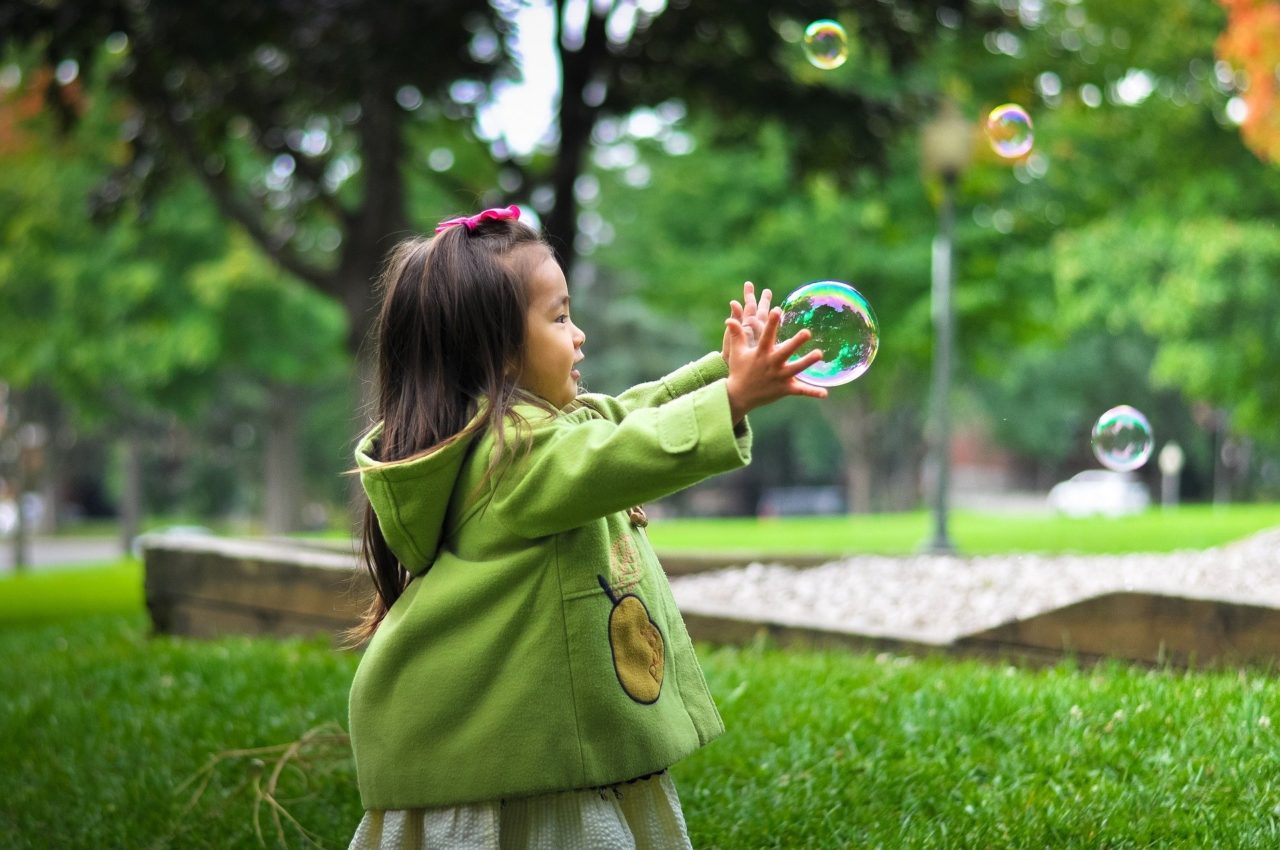A pot of blowing bubbles is a wonderful resource. Dinah, one of our counsellors, always has one in her counselling tool kit. Most supermarkets sell them, she tells us how when the power of bubbles should be used…
For Anger
When someone is feeing angry get them to blow bubbles, or you blow them, and they must stamp on each bubble as it hits the floor. The bubbles could be blown upwards and the child has to burst the bubbles between their hands. Encourage them to jump up to do this. The actions of stamping and jumping help to release the physical energy that often builds up in someone when they feel very angry. Using the bubbles will bring about a pause in the situation distracting them from their anger before it hits the exploding stage. It is also fun to do and enables you to change the situation without having to say anything negative or critical.
Worry bubbles
Ask the person to blow large bubbles either outside or through an open external door if it is not possible to go outside. They blow the bubble up into the air and at the same time think of a worry they have and imagine that it becomes enclosed in the bubble. As the bubble floats away and then bursts they think of that worry being released and disappearing into the sky.
Wishing bubbles
Similar to the one above but this time they imagine they are enclosing a wish inside the bubble and it is set free into the sky. Maybe it will come true!
Busy bubbles
Keeping everyone busy helps to limit the amount of arguing so here are some challenges for the family for fun.
- Blow the biggest bubble you can.
- Make double bubbles by blowing a bubble, catching it on the wand and then blow into it again.
- Burst every bubble before it reaches the ground.
- Partner up and one person blows a bubble over to the other who tries to catch it on their bubble wand. They then blow another bubble back to their partner. A sort of bubble tennis.
Bubbles are not just fun for children but teenagers and adults can enjoy them too.
The problem is often they feel self-conscious or silly but if you get them to blow bubbles for younger ones in the family to do some of the activities above you may get them involved and they could decide it is good fun after all and be happy to do it again.
To sign up to our regular Parenting in a Pandemic newsletters click here.

